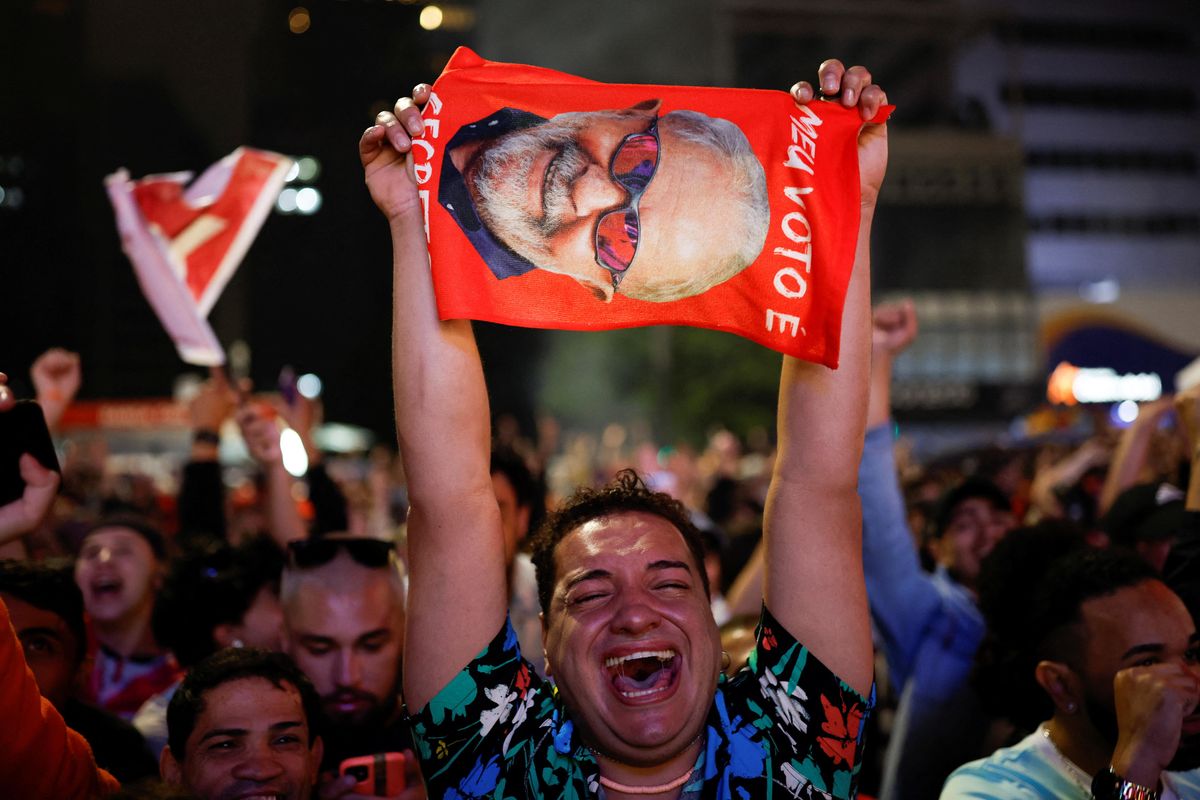Lula’s bittersweet first-round win
Left-wing former President Luiz Inácio "Lula" da Silva won the first round of Brazil's presidential election on Sunday but fell short of the outright majority needed to avoid an Oct. 30 runoff that might now be tighter than expected. With almost 97% of the ballots counted, Lula got 47.9% of the vote, 4.2 percentage points more than his nemesis: the far-right incumbent President Jair Bolsonaro. Although Lula is still favored to also win in the second round, the result is good news for Bolsonaro because he outperformed the polls, which had him trailing Lula by a wide margin and led many to believe his rival could win it all in the first round. Some experts think that Bolsonaro is consistently underestimated because many Brazilians are hesitant to admit they vote for him — a theory pollsters deny. Lula's narrower-than-expected victory might give Bolsonaro even more fodder to claim that the surveys are rigged against him. Brazil's president has spent months firing up his base with baseless doubts about the integrity of the election process, and no one would be surprised if he tries to pull a 6 de Janeiro if he loses the runoff.
Coups and counter-coups in Burkina Faso
Coups are always messy affairs, but the West African nation of Burkina Faso is taking it to a whole new level. Late on Friday, Col. Ibrahim Traoré announced the removal of Lt. Col. Paul-Henri Damiba — who ousted democratically elected President Roch Kaboré in January — for failing to defeat an Islamist insurgency. The next day, Traoré claimed Damiba was planning a counter-coup with help from former colonial power France. Pas moyen, says Paris, as protesters attacked French interests in the capital, Ouagadougou, before Damiba agreed to step down on Sunday. Meanwhile, Traoré's junta is reaching out to "new partners" to fight the jihadists — possibly code for Russian mercenaries employed by the notorious Wagner Group, already active in neighboring Mali. The Sahel remains a hotbed for Islamist insurgents despite almost a decade of French military presence, which has hurt France's reputation in many of these countries. A Russian-propagated conspiracy theory that the insecurity is a ruse by Paris to protect its interests is also fueling anti-French sentiment in the Sahel, where coups are making a comeback.
Ukraine won’t give up
Ukraine is claiming a strategic victory in one of its four regions recently annexed by Russia. Lyman, a logistical and railway base in the eastern Donetsk province, has been cleared of Russian forces, President Volodymyr Zelensky said on Sunday. Meanwhile, US Defense Secretary Lloyd Austin blasted Vladimir Putin’s recent nuclear threats, calling them “irresponsible” and “nuclear saber-rattling.” As for the Russian president and his recent land grab of Zaporizhzhia, Kherson, Donetsk, and Luhansk, interesting times are ahead: after holding a ceremony to sign accession treaties, Moscow is expected to process the documents through its parliament, after which Russia will consider the annexations complete. Next up? Russian laws and prosecutors would be imposed on the regions; militias fighting for Russia in Donetsk and Luhansk would be incorporated formally into the Russian military; the Russian ruble would be made the only legal currency; and after an oath of loyalty, residents would officially become Russian citizens. Meanwhile, the leaders of nine NATO countries issued a joint statement on Sunday condemning Russia's annexation of Ukrainian territories and pushing NATO to increase military assistance to Kyiv.
This article comes to you from the Signal newsletter team of GZERO Media. Sign up today.

















